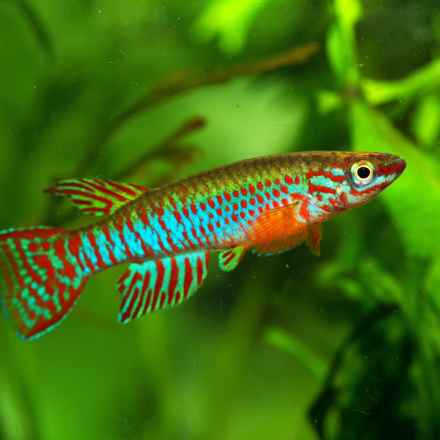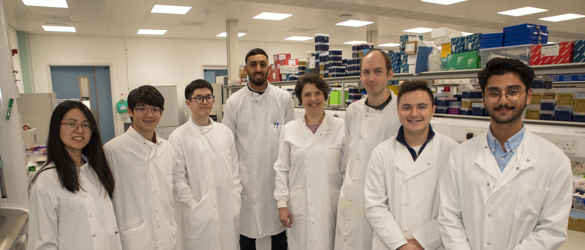Studying retinal ageing in a rapidly ageing fish

Dr Nicole Noel, Institute of Ophthalmology, UCL - £25,000
Researchers at UCL’s Institute of Ophthalmology are studying the African turquoise killifish which naturally develops many of the same retinal changes seen in people with age-related macular degeneration (AMD), but within a much shorter lifespan.
By examining how the killifish retina changes over time, this project will reveal new insights into the biological processes that drive retinal ageing and AMD progression, helping scientists better understand how the disease develops and how it might one day be prevented.
What is the problem?
To understand how AMD develops and progresses, researchers need accurate model systems that replicate the key features of retinal ageing. Existing models are limited in how well, and how quickly, they reflect the complex changes seen in human eyes.
The killifish offers a unique opportunity to fill this gap. This short-lived species naturally shows signs of retinal ageing such as inflammation, photoreceptor loss, and lipid deposits, similar to those seen in people with AMD. Because killifish age rapidly, scientists can study an entire lifespan in a fraction of the time required for other species.
What are they doing?
The research team will investigate how the retina and retinal pigment epithelium (RPE) change as killifish age. They will use RNA sequencing to identify how protein production shifts over time, particularly those proteins involved in inflammation, photoreceptor health, and lipid metabolism.
By comparing results from killifish with human retinal data, researchers aim to pinpoint shared ageing pathways that contribute to AMD development and susceptibility.
How can this help?
This project will expand our understanding of how ageing affects the retina and why some people are more vulnerable to macular degeneration.
The insights gained could reveal new biomarkers and therapeutic targets for slowing or preventing AMD, helping researchers design future treatments that protect sight as we age.
See our other projects
Since 1987 the Macular Society has invested around £10 million in over 100 research projects.
Explore more research
Beating macular disease through funding medical research and improving the lives of those living with macular disease.
Get the latest research news from the Macular Society
To hear about life-changing research and treatments, subscribe to our monthly enewsletter today. Together we can Beat Macular Disease.
Sign up to our free email newsletter



